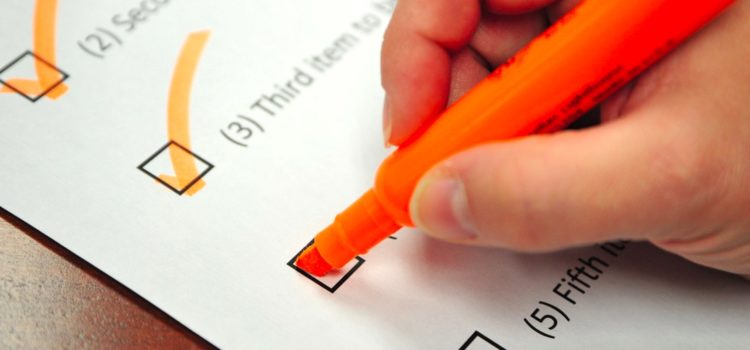

This article is an excerpt from the Shortform book guide to "Awaken the Giant Within" by Tony Robbins. Shortform has the world's best summaries and analyses of books you should be reading.
Like this article? Sign up for a free trial here .
What are Tony Robbins’ personal rules? How can having effective personal rules improve your life?
According to Tony Robbins, personal rules are the guidelines that decide if you’ve reached your values. For example, you may have a rule that you need a certain amount of money in the bank to feel that you’ve fulfilled your value of security. Creating effective and powerful empowering personal rules will allow you to feel more positive emotions in your daily life.
Keep reading for more on Tony Robbins’ personal rules.
Tony Robbins’ Personal Rules
The greatest fulfillment in life is to not only know your values, but also to live by them—but, as we’ll explain in this article, you’ll only feel that you’re living out your values if your rules set you up for success.
Tony Robbins’ personal rules are the beliefs you have about what needs to happen in order for you to feel that you’ve fulfilled your value. You can live a more fulfilling life by simply changing your rules to make them more achievable. In this article, we’ll discuss:
- How rules can empower or disempower you
- How you prioritize your rules in a hierarchy
- How rules (and sub-rules) impact relationships
- How you can identify, evaluate, and alter your own rules for a more fulfilling life
- How to understand Tony Robbins’ rules for empowerment
Make Rules That Bring Pleasure and Empowerment, Not Pain and Disempowerment
Your rules determine the conditions for you to feel pain or pleasure: If you have rules that are achievable, then you’ll often feel the pleasure of living out your values. But if you have rules that are unreasonable or inadequate, then you’ll frequently feel the pain of falling short. For example, if you value success, your rule might be that you need to make a certain salary to feel successful. If this is your rule, you’ll feel constant pain and disappointment until you earn that salary and finally feel that you’ve fulfilled your value. Alternatively, your rule could be that you need to do your best every day at work to be successful. In this case, it will be much easier to feel the pleasure of fulfilling your values immediately and consistently.
Unfortunately, most people have disempowering rules, which cause unnecessary pain because they:
- Have criteria that are impossible to meet
- Depend on external factors over which a person has no control
- Have few routes to happiness and many routes to pain—for example, if a person’s rule is that they must meet five stringent conditions in order to feel loved, then they’re creating countless ways to fail and feel pain and few ways to succeed and feel pleasure.
Many people adopt disempowering rules because society conditions them to believe that strict rules are necessary to motivate them to succeed. In reality, if your rules are so tough that you frequently fall short and feel frustrated and disappointed, then you’ll begin to believe that you can never reach your aim. Over time, you’ll associate the pain of failure with any effort to fulfill your values, and you’ll eventually develop learned helplessness. Furthermore, your self-esteem is dependent upon you feeling in control, and if your rules are impossible to satisfy, then you’ll feel that you have no control over achieving your values. Your self-esteem will suffer.
Fortunately, you can rework your rules to make them empowering and achievable, which will make you feel in control almost effortlessly, and your self-esteem will soar. We’ll talk about how to customize your rules later in this chapter.
Recognize Your Rule Hierarchy
Just as you have a hierarchy of values, you also have a hierarchy of rules. Understanding your rule hierarchy is key to understanding Tony Robbins’ personal rules. There are two kinds of rules in the hierarchy:
- Threshold rules are rules that are so important to you that you wouldn’t even consider breaking them because it would cause you so much pain. These rules govern things you feel you must and must never do.
- Personal standards are the rules that you occasionally break, though you feel bad about it when you do. These rules govern things you feel you should and should never do.
Understanding your rules hierarchy is key to ensuring that you have an empowering set of rules. The balance of your threshold rules and your personal standards impacts your life and well-being. On one hand, if you have too many threshold rules, they are likely to cause you stress because they create a lot of rigidity in your life. Too many musts can weigh down on you and crush your motivation, happiness, and sense of control (which directly impacts your self-esteem). On the other hand, you need enough musts to push you to follow through on actions. Having too many shoulds and not enough musts gives you more leeway to potentially fall short of reaching your values.
Apply It: Revamp Your Rules
Now that you know the power of rules, it’s time to evaluate your own to ensure that they’re not holding you back from living the life you want. Take some time to evaluate and update your own rules. First, answer the following questions:
- What needs to happen for you to feel loved?
- What needs to happen for you to feel confident?
- What needs to happen for you to feel successful?
- What needs to happen for you to feel that you’re excelling in something?
This will help you to clearly identify your rules.
Second, review each rule and ask yourself:
- Is this reasonable?
- Is this dependent only on my actions and things I can control?
- Does this make it easy to feel good?
- Does this make it hard to feel bad?
If you answered “no” to any of these questions, link pain with your disempowering rule and redesign the rule to be more empowering. Check to make sure that your new rule is empowering by asking each of these four questions again—you should be able to answer all of them with an emphatic “yes!” As you redesign your rules, consider these tips:
- Come up with multiple possible ways to satisfy each rule, so that you have lots of ways to achieve it and few ways to fail. For example, your rule for “health” could be that you feel healthy anytime you choose a healthy food, get a good night’s sleep, or do something to take care of your mental or physical well-being.
- Be creative and have fun. These are your rules—they can be anything, as long as they empower you.
Tony Robbins: Personal Rules Exercise
Reflect on whether your rules are helping or hindering your efforts to live by your values.
- What is one of your values? It can be one you identified in the exercise from the last chapter.
- What has to happen in order for you to feel you’ve fulfilled this value? For example, if you value happiness, what has to happen for you to feel happy? (Your answer is your “rule” for this value.
- Analyze whether or not your rule is empowering or disempowering. (For instance, ask yourself: Is your rule achievable? Is meeting it under your control, instead of relying on an external factor? Are there many ways for you to meet this rule?)
- If your rule is disempowering, what is a new, empowering rule you can replace it with?

———End of Preview———
Like what you just read? Read the rest of the world's best book summary and analysis of Tony Robbins's "Awaken the Giant Within" at Shortform .
Here's what you'll find in our full Awaken the Giant Within summary :
- How to make transformational changes to your life through small adjustments
- How you create your destiny every time you start a sentence with “I am…”
- Strategies to take control of your thoughts and emotions






